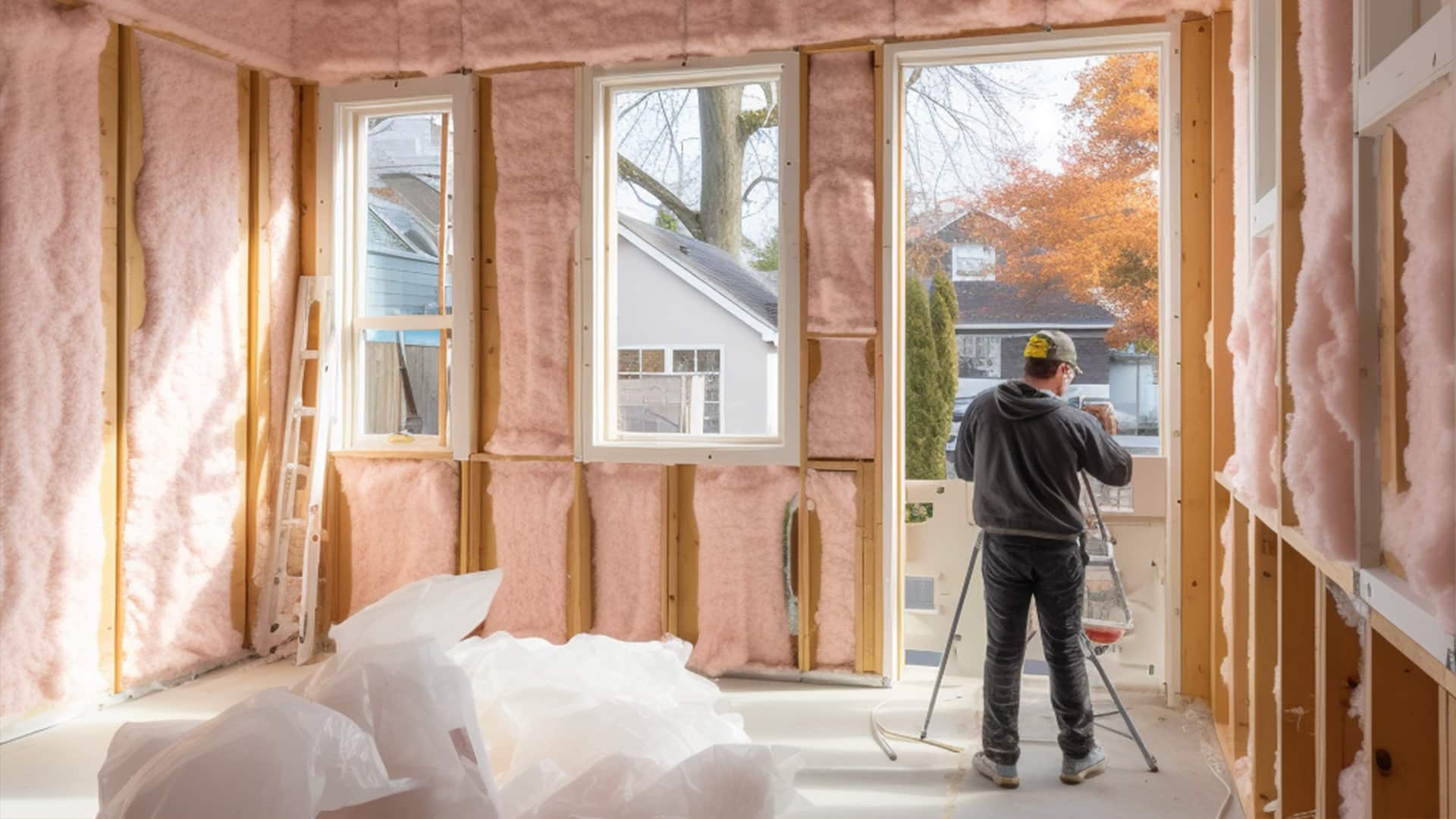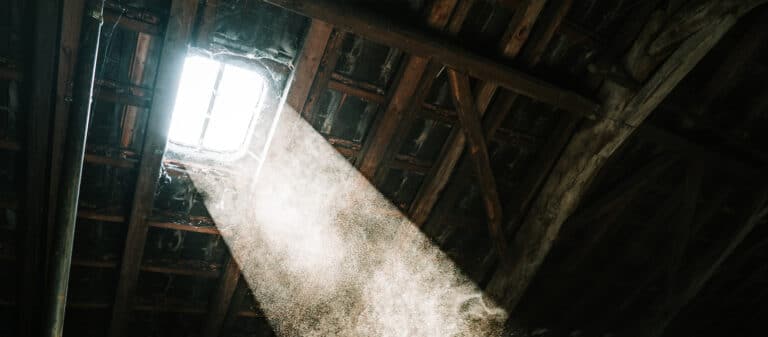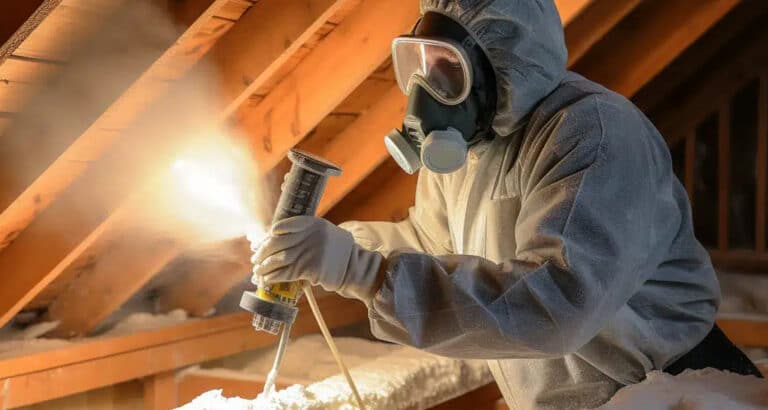Government incentives such as energy use benchmarking and the 45L tax credit are encouraging builders to create more energy-efficient homes for Pennsylvania residents.
Contractors and builders can meet these incentives by installing high-efficiency insulation that minimizes energy loss and consumption.
If your construction company is looking to build higher-efficiency homes, it pays to team up with the right insulation contractor.
This article will explain the benefits of selecting the right type of insulation in a new home build and outline ways your company can benefit financially from their investment.
Understanding the Role of Insulation
To understand the importance of insulation in new builds, it’s also essential to understand the role that insulation plays in a building.
1. Energy Efficiency
The primary purpose of new construction insulation is to improve its energy efficiency by reducing energy loss between walls and the exterior/interior of the home. Insulation is best applied in attics, basements, rim joists, and wall cavities, where hot and cold air tends to escape the most.
2. Thermal Comfort
Insulation also improves thermal comfort by minimizing drafts due to uneven energy distribution. Instead of your HVAC working hard to pump hot or cool air into one part of the room, insulation traps air, allowing it to circulate more efficiently and reach a desired temperature.
3. Sound Control
Insulation also contributes to sound control, creating a quieter and more peaceful living space by minimizing noise transfer between rooms and from external sources.
4. Moisture Control
Finally, insulation acts as a barrier against moisture, preventing issues like mold growth and structural damage. This is crucial for maintaining a healthy indoor environment.
Benefits of New Insulation in Construction for Builders
The benefits of insulation in new home construction are fairly self-evident. But what about the benefits builders and contractors can leverage from adding insulation to new builds?
- Increased Home Value: Potential buyers increasingly value energy-efficient features. Proper insulation adds to your home’s overall value, making it more attractive in the real estate market so that you can charge a higher price tag.
- Meeting Green Initiatives: Energy-efficient homes contribute to a smaller carbon footprint. Minimizing energy consumption allows your company to meet local, state, or federal green initiatives.
- Improved Reputation and Marketability: Marketing your construction business as a forward-thinking builder that prioritizes efficiency will help you appeal more customers who desire perks, such as lower energy bills and improved thermal comfort.
- Rebates/Credits Available: Builders that invest in quality insulation for new home construction can help offset their costs using the 45L tax credit and other insulation rebates available on the state and local levels.
7 Considerations for New Construction Insulation In Pennsylvania
- A Colder Climate: Northeast Pennsylvania is notoriously cold during the winter. This makes it extremely important what types of insulation you choose for projects in the area. Likewise, its proximity to the woods and outdoors also makes the choice for new insulation a no-brainer when it comes to combatting pests and allergens. While Pennsylvania does not have a particularly wet climate, insulation can still help prevent moisture buildup during the summer months [Learn More: Selecting the Best Insulation Materials for Cold Weather in Scranton].
- Building Codes and Regulations: Comply with Pennsylvania’s building codes and regulations regarding insulation requirements. Stay updated on any changes or specific mandates for new constructions.
- R-Value Requirements: EnergyStar provides a list of recommendations for R-values regarding attics, basements, and walls in Northeastern Pennsylvania. Based on recommendations, new home insulation should have an R-value of 60 for attics, 30 for floors, and 15 for basements.
- Air Sealing: Based on Pennsylvania’s climate, air sealing should also be taken with all new builds in conjunction with new insulation to offer the highest benefits to future homeowners.
- Energy-Efficient Windows and Doors: Coordinate insulation efforts with selecting energy-efficient windows and doors. Proper sealing around windows and doors complements the insulation’s effectiveness.
- Ventilation Systems: Implement a balanced ventilation system to maintain indoor air quality. Mechanical ventilation systems, such as heat recovery ventilators (HRVs) or energy recovery ventilators (ERVs), can be valuable additions.
- Future Renovations: Anticipate future renovations and plan insulation installations accordingly. Consider the accessibility of wall and attic spaces for potential upgrades.
Which Types of Insulation Are Best for New Homes?
New homes will benefit the most from investing in a high-efficiency insulation material. Due to modern architectural trends and building requirements, spray foam insulation remains the gold standard for attics, basements, crawl spaces, rim joists, etc.
Rigid foam board also serves as an excellent insulating material, offering a comparable R-value to open-cell foam. Likewise, fiberglass batts also offer great insulating material in tougher-to-reach places.
It’s clear that any new home construction can benefit from insulation. Consult with the professionals at EnergySmart on your next home project to find the suitable materials based on your build and budget.
FAQs: New Construction Insulation
How Does Insulation Contribute to Energy Efficiency?
Insulation minimizes heat transfer, creating a thermal barrier that keeps conditioned air inside and external temperatures out. This significantly reduces the need for heating or cooling, leading to energy savings and increased efficiency.
Should I Prioritize Air Sealing Alongside Insulation?
Absolutely. Air sealing complements insulation by preventing air leaks, enhancing energy efficiency, and maintaining a comfortable indoor environment. Consider both aspects for a comprehensive and effective approach to building performance.
How Can Insulation Enhance Indoor Air Quality?
Proper insulation, especially when coupled with ventilation strategies, helps control indoor humidity and prevents mold growth. This contributes to better indoor air quality, creating a healthier living environment for occupants.










